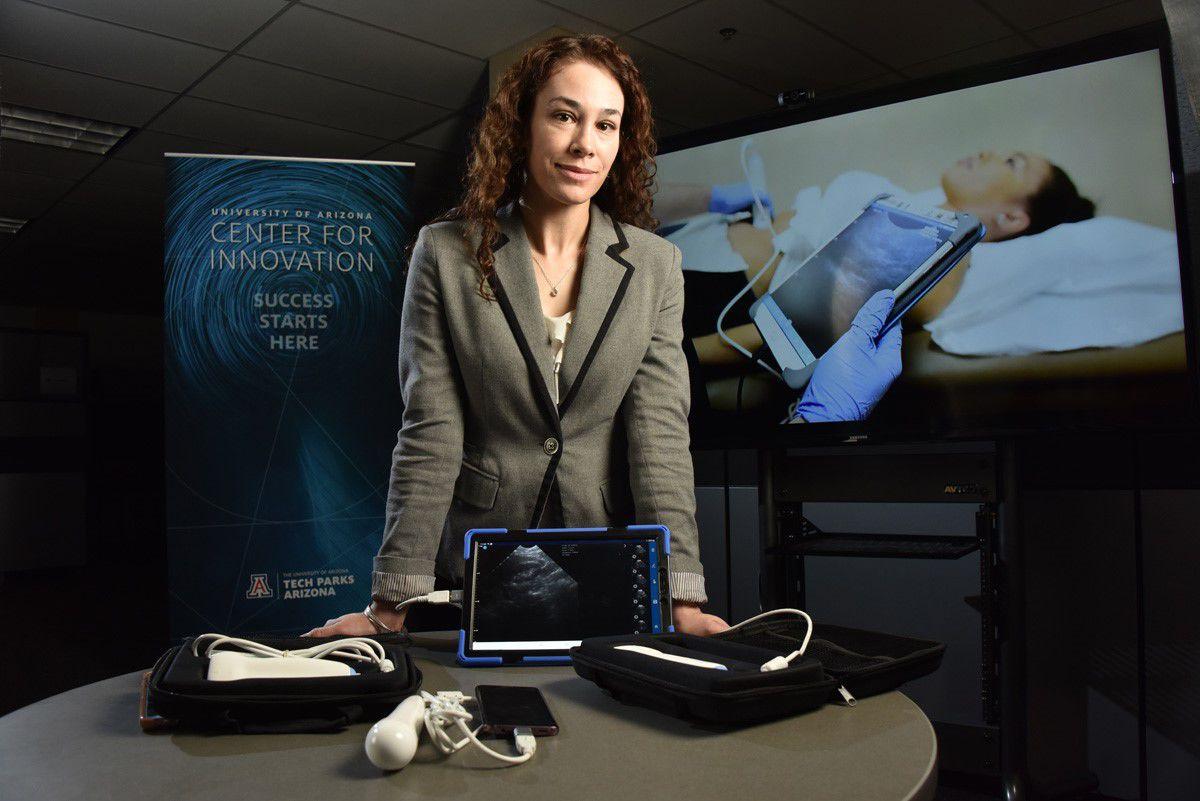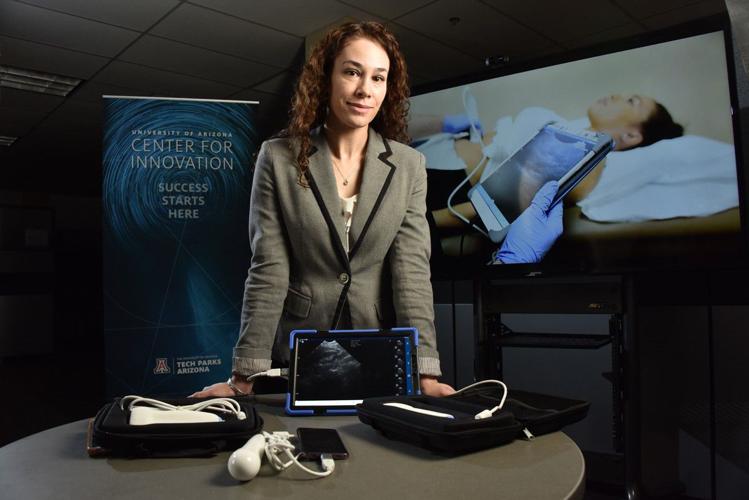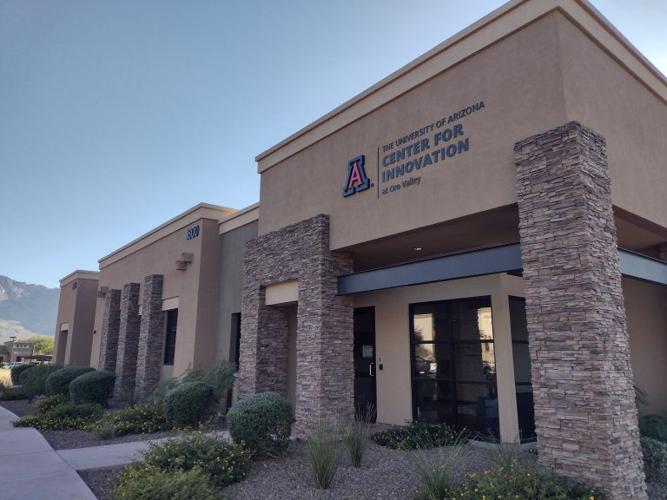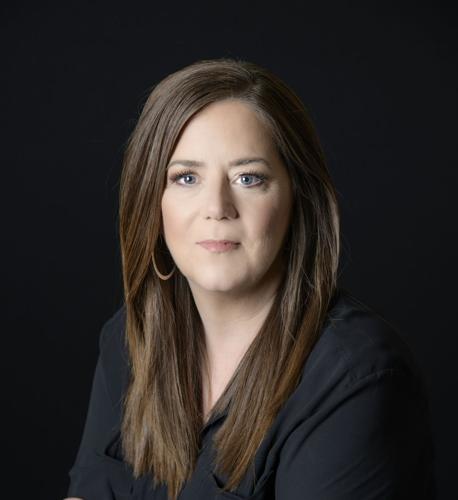Tucson has many programs and sources available to technology startups to provide resources and a better chance of success.
According to the United States Census Bureau, around 600,000 small businesses were started in the U.S. each year since 2015. Out of these businesses, 53.6% will fail before they hit their five-year mark, and 75.3% won’t make it past 15 years in business.
The Arizona Commerce Authority reports that 214,669 businesses were established in Arizona during 2023.
Tucson is a community focused on startups, small business and new businesses. In 2023, the Downtown Tucson Partnership reported that 29 businesses were started in downtown Tucson with 14 opening soon.
There are many reasons that businesses may fail, but one of the top failing industries is technology startups. Technology has produced some of the most profitable businesses, but according to the U.S. Census Bureau, 14.9% of tech-related businesses will fail.
Scaling up startups
The University of Arizona Center for Innovation focuses on technology startups. Its incubator program gives tech companies a higher chance of survival.
According to the UACI, over 1,000 entrepreneurs were empowered through workshops, educational training and pitch preparations.
According to Carol A. Stewart, vice president of the UACI, they have “between 70 to 80 startups in our program at any given time, which is an incredible number and the highest density of startups in any program in the state.”

Carol Stewart
When entrepreneurs are admitted to the program they follow a “rigid 27-step,” program that is designed to help them “scale up” their science or tech business. “The program we have really dives deep into how you build a scale up science or tech company,” Stewart said.
UACI allows startups to enter and exit the program at the most efficient times for the business.
“Over 50% of them are life science or bio which means they need very specialized infrastructure to move their companies forward,” Stewart said. The program helps startups make connections and get the equipment they need.
UACI has supported 235 startups, and they have helped 81 start since 2018. They help to fuel and grow science and tech startups that otherwise may not be able to succeed. Courtney Williams is an entrepreneur in Tucson, and her startup, Emagine Solutions Technology, created an app, The Journey Pregnancy.
“We are tackling the maternal health care crisis,” Williams said. The app allows pregnant women to log their blood pressure, weight, blood glucose, mood and other pregnancy symptoms.
The app connects with women’s health care providers so any complications can be caught before they become fatal.
When starting a business, Williams was on a journey of her own. “Initially I didn’t know what was available, and I was kinda shooting in the dark,” Williams said. “I found the University of Arizona Center for Innovation and they help usher the growth and creation process for startups, so they’ve been helpful.”
“There are never enough resources to get your business going, more than programs it has been people that have been the most helpful,” Williams said. “There are a lot of talented entrepreneurs in our community who have had a lot of great success and they are willing to lend their experience and their time.”

The University of Arizona Center for Innovation provides resources and education for science and technology startups.
Seek advice, work hard
Jeremy Wolf, located in Tucson, started MindReady, a coaching platform for athletes. “It helps athletes get sports psychology, coaching, performance coaching and education,” Wolf said.
Wolf played professional baseball, and he realized that he couldn’t find a structured resource for coaching and education, so he decided to start his own program.
He started a nonprofit organization for athletes, More Than Baseball, which led him to create MindReady.
“I knew that the model worked and I was looking at other models that were out there,” Wolf said. “I saw these models that are really successful so I knew we could take them and make them work specifically for athletes.”
Wolf was able to build a successful platform that has since taken off. “We built a marketplace of coaches so athletes can come onto our platform, go into the portal and they can match with a coach,” he said. “They can start working with them within 24 hours.”
“I cut my teeth in building with nonprofits and when you do that you can test things, so I practiced for four years building something from scratch,” Wolf said. “In the four years of building More Than Baseball, we raised like $2.5 million and supported over 5,000 minor leaguers and now it’s the largest union in professional sports.”
“The way that I learned how to do this or how to build this is you just do it, you just build it, you test it and you ask people for advice,” Wolf said.
Wolf has found startup sources in Tucson helpful, but for him it boils down to hard work.
“I’m part of UACI and FORGE and those are great organizations because you get to go out and you get to pitch your idea and you get to talk about it and you get to refine it,” Wolf said. “Every single entrepreneur you talk to, it’s not about the advice or the mentors they had, it’s about the grit and the work they do every single day to make something.”
Connecting community and entrepreneurs
CommunityShare is a volunteer program in Pima County that started 10 years ago as a nonprofit organization. According to program coordinator Brandon Mejia, they are “bridging business and education.”
The platform was recently purchased by the Pima County School Superintendent’s Office so all schools in the district have access to the resources.
CommunityShare serves as a platform for small businesses and skilled professionals to volunteer their skills so teachers in the community can connect and bring them into their K-12 classrooms to teach hands-on skills.
“The idea behind it is building a human resource library,” Mejia said. “It gives local and small businesses the opportunity to engage with education.”
“All these businesses are created from entrepreneurs,” Mejia said. “When they’re well established and comfortable this creates a way for them to reach out and give to education so students can learn and see that entrepreneurial mentality around business.”
CommunityShare includes artists, authors, machine shops, musicians and other community members who share their business and talent with school districts in the community.
“It’s all about creating opportunities for students who may not have seen that or had those opportunities so they can later down the road,” Mejia said.
CommunityShare is creating opportunities for children who would never have these experiences. “Once we engage a community partner with an educator and get them into the classroom, or even better have them take the students out of the classroom, a lot of the time the reward they take away is being able to see those kids actively engaged in something,” Mejia said.
“This is an idea that maybe they’re not going to learn this in school so much,” Mejia said. “But thankfully we had a community partner who came in and showed us that this applies to the real world.”
El Inde Arizona is a news service of the University of Arizona School of Journalism.











